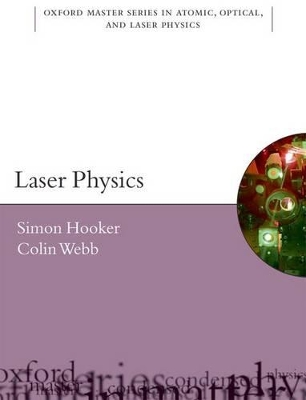Oxford Master Series in Physics
1 primary work
Book 9
In this book the interaction of radiation and matter, and the principles of laser operation are treated at a level suitable for fourth-year undergraduate courses or introductory graduate courses in physics, chemistry or engineering. The factors which determine efficiency, wavelength coverage, output power, and beam quality of the different classes of laser are treated both in terms of fundamental theory and practical construction aspects. Details of established types
of solid-state, semiconductor, and gas lasers are examined together with the techniques that enable their output to be converted widely across the spectrum. The latest advances in high power fibre lasers, femtosecond lasers, and X-ray lasers are explained. The text is liberally illustrated with more
than 300 diagrams. An extensive bibliography is provided, together with numerical problems in each chapter. Solutions are available via the web.
of solid-state, semiconductor, and gas lasers are examined together with the techniques that enable their output to be converted widely across the spectrum. The latest advances in high power fibre lasers, femtosecond lasers, and X-ray lasers are explained. The text is liberally illustrated with more
than 300 diagrams. An extensive bibliography is provided, together with numerical problems in each chapter. Solutions are available via the web.
